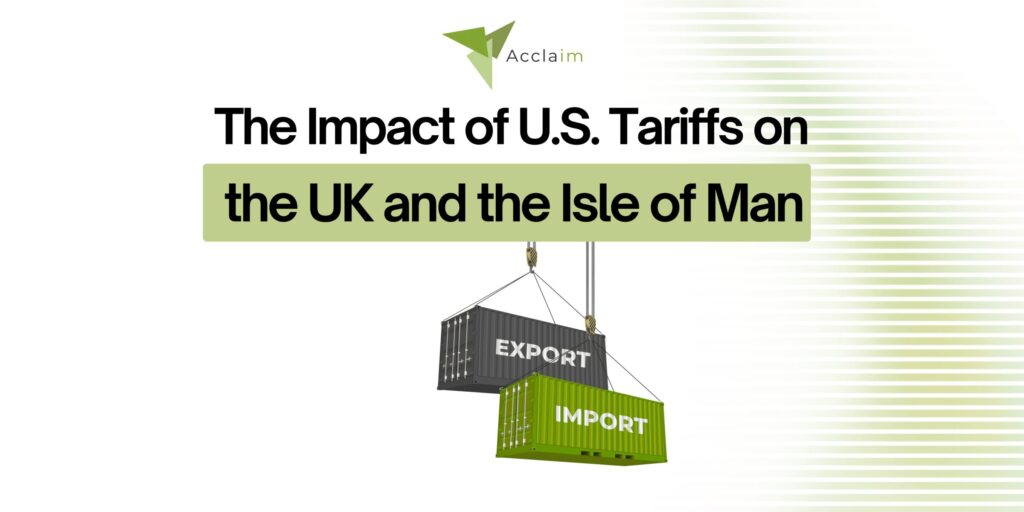New Trade Realities: IOM & UK Paths
The reintroduction of widespread U.S. tariffs by President Trump in early 2025 has sent shockwaves through global markets, disrupting long-standing trade relationships. Framed as a strategy to revive American manufacturing, these tariffs include a blanket 10% duty on many UK goods. While aimed at strengthening U.S. industry, the move is already creating serious strain for UK exporters and indirectly, for the Isle of Man.
The Isle of Man’s Connected, Yet Unique, Exposure
Although the Isle of Man exports relatively few goods directly to the United States, its economic link to the UK via the 1979 Customs and Excise Agreement makes it vulnerable. Under this agreement, customs revenues are shared. As UK exports decline due to tariffs, the Isle of Man’s share of those revenues also shrinks.
The UK sectors taking the biggest hit include:
-
Pharmaceuticals (£7.2bn annually)
-
Generators (£5.2bn)
-
Vehicles (£8.3bn)
For example, Jaguar Land Rover has already paused U.S. shipments. As a result, concerns are growing over production slowdowns and potential job losses in the UK, which could ripple out to the Isle of Man.
Service Sector Stability… But Not Immunity
The Isle of Man’s economy is heavily service-based, with services accounting for around 94% of its GDP. This structure does offer some protection from tariffs targeting physical goods. However, not all sectors are immune. Local service providers connected to UK exporters or integrated into global supply chains remain exposed.
This pressure is already showing. In early 2025, the Island recorded a 273% spike in rejected invoices, reflecting growing financial stress in trade-adjacent services.
Turning Trade Disruption Into Strategic Opportunity
Despite these setbacks, there are signs of resilience and adaptation. Some Isle of Man-based trust and corporate service providers are already leveraging the Island’s stable, low-tax environment to attract international firms. As companies rethink their global operations in response to rising trade barriers, the Isle of Man has a real chance to position itself as a strategic hub.
If approached proactively, the current disruption could pave the way for new opportunities, reshaping the Island’s global economic role in the years ahead.






